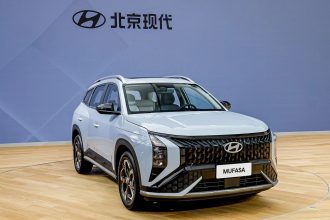At the 37th IESE Mobility Meeting in Barcelona, Xavier Ros spoke about current challenges and solutions for HR in the automotive industry. The AUDI AG Chief Human Resources Officer’s presentation focused on how workforce transformation, talent acquisition, and retention are paving the way for Audi to become a digital car company. Here is an overview of the key points:
Contents
On the impact of digitalization and electrification on the workforce:
- “With its technology leaps and ever shorter development cycles, digitalization is a particularly challenging task. Because digitalization is not just about a technological turning point, it affects everyone in all areas and phases of their lives.”
- “By anchoring the path to electromobility in our ‘Progress 2030’ strategy, we have given the technology shift a clearly defined time frame. This provides the guidelines to align our human resources planning accordingly.”
- “We have a particular responsibility to guide our employees and position our talent to shape Audi’s digital and electric future successfully.”
- “The key question in this personnel transformation, initially driven from within, is: How do we bring people with us?”
On the skills shortage:
- “The skills shortage is a reality. It is a problem that politics, business, science, and society must solve together. We must find new ways to address it.”
- “We as HR at Audi see skills shortage and demographic change as causing a fundamental shift in the labor market, which means a complete rethink of the talent acquisition issue.”
- “We are an attractive employer if we know where our needs in the world of work arise, what will take us there in the future, and where society’s demands lie in terms of work-life balance.”
On employee retention and acquisition:
- “Freedom is a basic value of Audi which we, as a company with a history spanning more than 100 years, make possible not only for our customers with great vehicles worldwide but also for our employees. I am convinced that companies granting greater autonomy gain maximum commitment, motivation, and ideas.”
- “For employees to stay motivated, an inclusive and diverse corporate culture is needed in addition to a self-determined learning culture, a flexible working environment, and psychological safety.”
- “In our HR work, we clearly see that younger generations, in particular, demand an inclusive environment. That’s another reason why I see it as a key driver of our employer attractiveness.”









